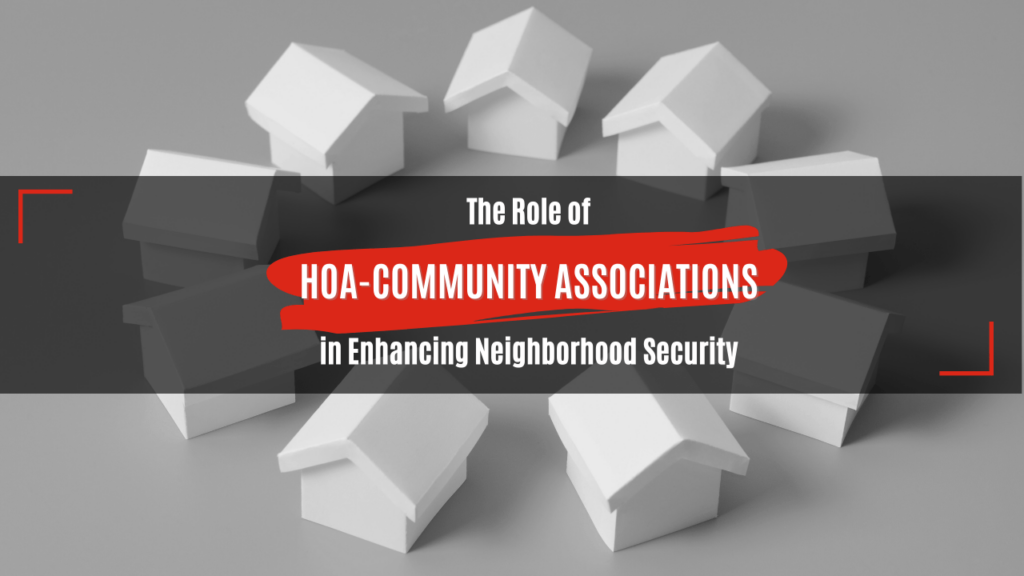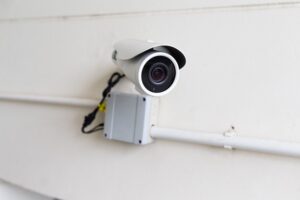
Nestled in the heart of sunny Southern California, Anaheim is a vibrant and diverse city best known as the home of Disneyland, one of the world’s most famous amusement parks. With a population that exceeds 350,000 residents, Anaheim is the second-largest city in Orange County.
As with any growing city, Anaheim’s neighborhoods are often characterized by community living arrangements, where residents don’t just share geographic proximity, but also various amenities and responsibilities. This is where Homeowners Associations (HOAs) and community associations step in.
These organizations are often regarded as the backbone of the community living in Anaheim. They manage the common areas such as parks and swimming pools, ensure adherence to community standards, and play a pivotal role in fostering a sense of community among residents. With the increasing need for sustainable and harmonious living, the role of HOA and community associations becomes indispensable.
However, with a city as bustling as Anaheim, neighborhood security emerges as a focal point of concern. Historically, like many other urban areas, Anaheim has faced its share of challenges in maintaining the safety and security of its neighborhoods.
Given the evolving nature of challenges in maintaining neighborhood security, HOAs and community associations are expected to increasingly assume a more proactive role. From implementing state-of-the-art surveillance systems to fostering neighborhood watch programs, these organizations are implementing various strategies to create a more secure living environment.
Let’s look at some of the specifics of how these associations are not just promoting a sense of community among residents but are also acting as guardians, ensuring that Anaheim continues to be a safe and delightful place to call home.
The Role of HOA in Neighborhood Security
Homeowners Associations (HOAs) are an integral part of neighborhood security, acting as both a shield and a facilitator for safe living. Here are the dual responsibilities of HOAs in ensuring security: their legal obligations and their responsibilities toward the residents.
- Understanding the Legal Framework: HOAs must be well-acquainted with state and local laws regarding neighborhood security. In California, HOAs are required to take reasonable steps to ensure the safety of residents. Their actions must be in compliance with these legal requirements.
- Addressing Foreseeable Risks: It is incumbent upon the HOA to address any foreseeable security risks. Failure to do so can lead to legal liabilities. For instance, if an area within the community is known for break-ins, the HOA has a legal obligation to take measures to mitigate this risk.
- Regular Security Audits: To keep pace with evolving threats, HOAs should conduct regular security audits. This involves inspecting the physical infrastructure, evaluating existing security measures, and identifying areas for improvement.
- Community Engagement: One of the hallmarks of an effective HOA is active community engagement. This involves holding regular meetings with residents to discuss security concerns.
- Implementing Robust Security Measures: Depending on the community’s needs and resources, the HOA should implement appropriate security measures. This might include installing surveillance cameras, employing security personnel, or setting up neighborhood watch programs.
- Promoting a Culture of Vigilance: An HOA should work toward fostering a community culture that encourages residents to be vigilant and take shared responsibility for each other’s safety. This includes educating residents about the importance of security and encouraging them to report any suspicious activities.
- Ensuring Quality of Life: Ultimately, the purpose of all security measures is to ensure that residents can enjoy a high quality of life in their community. This involves not just protecting them from external threats but also ensuring that they feel safe and supported within the neighborhood.
Through a combination of fulfilling legal obligations and dedicating themselves to the welfare of the residents, HOAs play a crucial role in not only protecting communities but also in building them into strong, cohesive, and secure environments in which to live.
Steps HOA-Community Associations Take to Enhance Neighborhood Security
HOAs in Anaheim have adopted a multifaceted approach to bolster neighborhood security, leveraging a mix of technology and community involvement.
Some implement surveillance systems that act as the eyes of the community, recording activities, deterring potential criminals, and providing critical evidence in case of security incidents. Others control access to the buildings and facilities of the HOA to prevent unauthorized intrusions.
Here is a detailed look at some of these strategies.
Implementing Robust Surveillance Systems
One of the critical security measures implemented by HOAs is the installation and maintenance of surveillance systems. These systems typically consist of strategically placed security cameras throughout the neighborhood, including entrances, common areas, and parks.
Surveillance cameras act as a deterrent to potential criminals and provide valuable evidence in case of any incidents. HOA community associations often work closely with security professionals to design an effective surveillance system that meets the community’s unique needs. Moreover, they provide valuable evidence in the event of incidents, offering crucial support to law enforcement investigations and facilitating a safer living environment for residents.
Organizing Neighborhood Watch Programs
Many HOA associations understand the importance of neighborhood watch programs and actively encourage residents to participate. These community-led initiatives rely on the collective vigilance of residents to monitor and report suspicious activities, Effectively deterring crime and fostering a greater sense of security among homeowners.
They regularly conduct community meetings and workshops that provide valuable platforms for residents to learn about crime prevention strategies and receive guidance on effectively contributing to their neighborhood’s security. These gatherings facilitate information sharing and foster a strong sense of community and cooperation among residents.
Through their participation in neighborhood watch programs, HOAs demonstrate their commitment to creating a safe living environment. They encourage residents to report any suspicious activities promptly to local law enforcement, ensuring that potential threats are addressed quickly and efficiently.
Managing Access Control
Access control systems allow HOAs to respond more quickly to safety issues and better manage access to amenities like gyms, pools, and recreation rooms. The board implements these systems to have better visibility and control over who enters the community, reducing the risk of unauthorized individuals or potential criminals gaining access.
HOAs in Anaheim can choose from various access control measures, such as gated entrances with security guards or electronic keycard systems. Gated entrances with security guards provide a visible presence, deterring unauthorized entry and creating a sense of security among residents.
In addition, electronic keycard systems offer a secure and efficient access control method, ensuring that only authorized individuals, such as residents and authorized visitors, can enter the community.
HOAs effectively reduce the neighborhood’s criminal activity risk with an access control system. They restrict unauthorized individuals from entering the community and create a safer environment for residents. These measures enhance security and provide homeowners peace of mind, knowing their community is actively protected.
Compliance with Premises Liability Laws
Compliance with premises liability laws is crucial for HOAs in ensuring the safety and well-being of their residents. Depending on the state regulations, neighborhoods may bear legal responsibility for preventing injuries caused by third parties or maintaining a safe environment to avoid harm to others.
For instance, In California, premises liability laws generally hold property owners or occupants responsible for maintaining safe conditions to prevent injuries to visitors or guests. This applies to residential and commercial properties, including neighborhoods governed by HOA associations.
Under California law, HOAs have to exercise reasonable care in maintaining common areas and ensuring the safety of residents and visitors. This duty includes taking reasonable steps to prevent foreseeable harm and providing adequate security measures to protect against criminal activity.
HOAs stay current with premises liability laws and proactively mitigate potential risks. They demonstrate their commitment to compliance by ensuring that common buildings and grounds within the community have ample visible signage reflecting premises liability laws.
Contact Professionals to Enhance Your Neighborhood Security
 The security measures implemented by HOAs in association-governed communities can vary, but the association and individual residents need to prioritize neighborhood security. Following the recommended security measures, such as surveillance systems, neighborhood watch programs, access control, and real-time monitoring, can help HOAs create a safer living environment for residents.
The security measures implemented by HOAs in association-governed communities can vary, but the association and individual residents need to prioritize neighborhood security. Following the recommended security measures, such as surveillance systems, neighborhood watch programs, access control, and real-time monitoring, can help HOAs create a safer living environment for residents.
If your HOA community lacks security measures, it is crucial to take prompt action. Consider contacting a provider of community management services, like Progressive Association Management, for expert assistance in implementing effective security measures tailored to your neighborhood’s needs.
Schedule a free consultation today at Progressive Association Management to take the necessary steps toward a safer, planned neighborhood!
